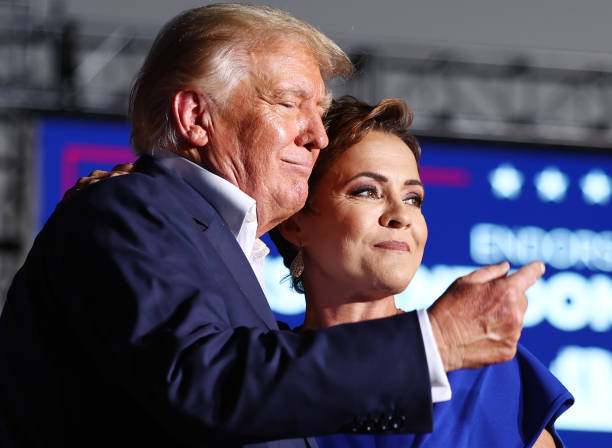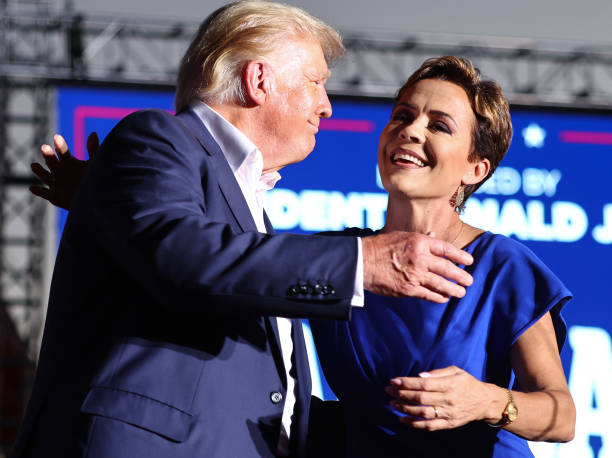Kari Lake clinched the Republican candidacy for the U.S. Senate in Arizona on Tuesday, her resounding victory in the primaries bolstered by an endorsement from Donald Trump. However, a new book reveals that Trump has often derided Lake for her fervent promotion of his unfounded claims of election fraud.
Meridith McGraw, in “Trump in Exile,” a chronicle of the former president’s life post-presidency, writes that Lake’s relentless discourse on election fraud would sometimes amuse Trump. The book, set for release in the U.S. next week, was reviewed by The Guardian.
McGraw notes that Trump advised other Republicans seeking his endorsement to emulate Lake’s approach. “No matter what you ask Kari Lake,” McGraw quotes Trump, “she somehow always steers the conversation back to the election. Ask about her family, and she’ll pivot to saying, ‘The family’s doing well, but they’ll only thrive with free and fair elections.'”

McGraw cites Trump’s associates and donors, with one commenting, “He’d say, ‘You could ask her about the weather, and she’d somehow connect it to the election, like ‘The weather in Phoenix is fine, but it won’t be truly great until we have a fair election.’”
RELATED : US Secret Service director admits Trump shooting an ‘operational failure’
In a 2022 exchange captured by a documentary crew, Trump discussed Lake with Blake Masters—now a U.S. House candidate but then vying for the Senate. Trump praised Masters’ debate performance but critiqued his stance on election issues. “If you want to win, you need to be more forceful on that issue,” Trump advised. “Look at Kari. She’s winning with minimal funding, always bringing the conversation back to election fraud. If you soften your stance, you’ll lose that support.”
Despite there being no evidence to support Trump’s allegations of election fraud in the 2020 presidential race, he continues to propagate this narrative, which ignited the violent Capitol riot on January 6, 2021. Almost four years later, this narrative remains a staple among many Republican candidates and resonates with a significant portion of Republican voters.
McGraw describes Lake as one of the most vocal proponents of election denialism. A former TV anchor, Lake ran for Arizona governor in 2022, heavily relying on Trump’s debunked claims of voter fraud in the state two years earlier. Despite losing to Katie Hobbs, Lake has refused to concede, maintaining that fraud was to blame for her defeat.

Now campaigning for a Senate seat, Lake—who previously supported Barack Obama—will compete against Democrat Ruben Gallego in November, a race that could determine control of the Senate.
Reflecting on Lake’s successful wooing of Trump, McGraw writes: “Professing belief in—or at least promoting—Trump’s falsehoods about the election has become a key criterion for his endorsement. Lake, like many Trump-backed candidates, emerged as a leading voice in the election denialism movement.”
In “Trump in Exile,” McGraw offers a comprehensive look at the former president’s political maneuvers since leaving office in January 2021, including surviving a second impeachment over the January 6 attack, securing the Republican nomination for a third consecutive presidential run, and navigating multiple legal challenges, including 88 criminal charges (34 resulting in conviction) and significant fines in several civil lawsuits.


